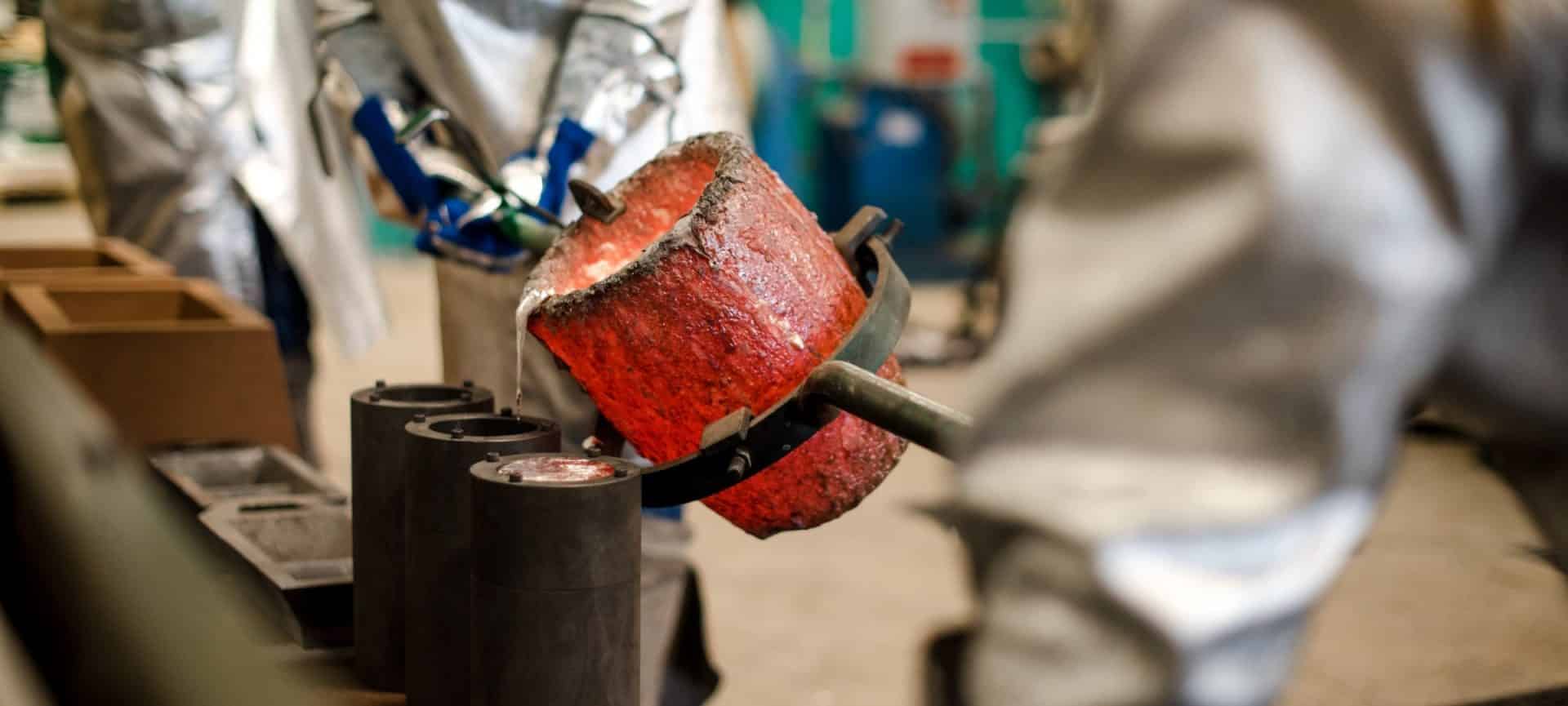Materials Science and Engineering
Specialty
Engineering
Degree
Bachelor's
Master
PhD
Language
Turki, English
Duration
4 years
Start Form
2000$
جدول المحتويات
Studying Materials Science and Engineering in Turkey represents an exciting option for students seeking deep knowledge and practical skills in materials science, engineering, metallurgy, mining, and more. These programs are of significant importance due to the increasing demand for advanced materials and modern technology in various industries.
Materials Science and Engineering programs in Turkey focus on providing a profound understanding of the manufacturing and engineering applications of materials, including steel, non-ferrous metals, polymers, composites, and more. In this article, we will explore these aspects in detail.
What is a Materials Science and Engineering Program?
A Materials Science and Engineering program aims to equip students with the knowledge and skills necessary to understand the properties of different materials and their engineering applications in various industries. This program emphasizes the study of fundamental sciences such as chemistry and physics, along with the analysis and engineering design of these materials.

Additionally, the specializations within this program vary based on each program’s focus and industrial and technological needs. Among these specializations are metallurgical engineering, polymer materials engineering, carbon and composite materials, materials manufacturing techniques, and materials design and development.
Studying Materials Science and Engineering in Turkey
Materials Science and Engineering is a crucial and popular field in Turkish universities, with Turkey offering distinguished and diverse academic programs in this area. This specialization aims to provide students with the knowledge and skills needed to understand and develop metallic materials and apply them across various industries, such as the automotive industry, aviation, electronics, energy, and more.
The coursework in this program includes a mix of fundamental and applied subjects, such as materials science, forming and machining processes, surface science and corrosion, materials design, and the physical engineering of materials. Additionally, there are various specialized courses based on the student’s interests and needs, all taught over four academic years.
Turkish universities offer students opportunities to participate in scientific research in materials science and engineering. They also provide practical training opportunities through collaborations with local and international industries. Upon graduation, students can pursue careers in a wide range of industries, including automotive, aviation, marine industries, energy, electronics, and many other sectors that rely on the use and development of metallic materials.
Core Subjects in Materials Science and Engineering
As previously mentioned, Turkey stands out as a prime destination for engineers, especially those interested in studying Materials Science and Engineering. This is due to Turkey’s diverse economic initiatives focused on creating competitive industrial models in global markets.

The faculties of Materials Science and Engineering in Turkey emphasize scientific courses, which are divided into fundamental sciences and specialized materials. Below are the core courses taught over the four years:
First Year:
- Introduction to Materials Engineering
- Social Responsibility and Professional Ethics
- Information Technology
- Computer-Aided Design
- Mathematics
- Physics
- General Chemistry
Second Year:
- Introduction to Economics
- Introduction to Mathematical Optimization
- Analysis and Algebra
- Probability and Statistics
- Plant Sections
- Modern Physics
- Manufacturing Processes
- Operations Research
- Differential Equations
- Research Techniques and Report Writing

Third Year:
- Engineering Economics
- Production Planning and Control
- Financial Accounting
- Workplace Management
- Quality Management
- Human Resources Management
- Occupational Health and Safety
- Design of Engineering Experiments
- Management Information Systems
Fourth Year:
- Manufacturing and Supply Chain Management
- Ergonomics
- Entrepreneurship
- Industrial Engineering Design
- Global Trade
In addition to the above, students are required to complete a graduation project, managed under the supervision of a professor. This project marks the culmination of the final year and prepares the student to become a specialized and professional materials engineer capable of working in various industries.
What Students Learn in Materials Science and Engineering
Materials Science and Engineering students acquire numerous practical and hands-on skills. These include conducting experiments to understand the chemical and physical properties of metals and industrial materials. Turkish universities focus on how students can improve these properties to make them more effective for industrial applications. Students work on designing and optimizing tools and equipment used in extracting, refining, and processing materials, aiming to increase efficiency and reduce costs.
Moreover, they use nanotechnology to rearrange the atomic structure of metals, altering their properties to benefit industrial applications, such as increasing strength or enhancing corrosion resistance. Students also study the effects of various factors like heat and pressure on metals and industrial parts to ensure optimal performance in intended applications, such as engine cylinders.

Additionally, they develop and produce new synthetic polymers with enhanced properties at reasonable production costs, paving the way for new and innovative products. This effort aims to provide materials that better adapt to the diverse requirements of different industries, fostering advancement and innovation in fields such as medicine, engineering, construction, and more.
Duration of Materials Science and Engineering Program in Turkey
The duration of the Materials Science and Engineering program in Turkish universities is typically four years for a bachelor’s degree. This program includes numerous theoretical and practical core courses to achieve a comprehensive understanding of various materials and their engineering. Furthermore, Turkish universities offer practical training in numerous factories, companies, and mines to bridge the gap between academic study and practical work after graduation.
It is important to note that the study period may be extended by an additional preparatory year for language studies, either in English or Turkish. Therefore, the total duration for a bachelor’s degree in Materials Science and Engineering could be five years.
You can register with us now at Safa Company, which will accept your university admission easily
Safa Company is your first educational companion🎓 for communicating on WhatsApp🎓
Top Turkish Universities for Studying Materials Science and Engineering
Turkey offers a diverse range of private universities that excel in teaching Materials Science and Engineering. Many of these institutions are highly ranked and recognized globally. The most prominent universities include:
Studying Materials Science and Engineering at OSTIM Technical University
OSTIM Technical University (Ostim Technical University) is an exciting destination for students seeking to study Materials Science and Engineering in Turkey. Founded in 2017, OSTIM Technical University is the first industrial university in Turkey and one of the leading industrial regions in the country. The university offers advanced programs in Materials Science and Engineering, providing students with in-depth knowledge and skills in this vital field.

Advantages of Studying at OSTIM Technical University
- Outstanding Academic Programs: Turkish universities offer excellent academic programs in metallurgical engineering and materials science, including core and specialized subjects taught using the latest methods and technologies.
- Advanced Learning Environment: Turkish universities feature state-of-the-art infrastructure and modern educational facilities that help students acquire practical skills and scientific experience.
- Diverse Educational Options: Turkey provides a wide array of universities and colleges that offer programs in this specialty, allowing students to choose the university and program that best suits their needs.
- Industry Collaboration: Many Turkish universities establish partnerships with local and international industries, providing students with practical training opportunities and connections with relevant companies and organizations in the field of materials science and engineering.
- Research and Development Opportunities: Students in Turkey can participate in scientific research and developmental programs in metallurgical and materials engineering, helping them enhance their skills and broaden their knowledge in this area.
- Career Opportunities: Graduates of this specialty have diverse job opportunities in various industries, such as heavy industries, engineering, aviation, and many other fields that require the use and development of metallic materials.
Cost of Studying Materials Science and Engineering in Turkish Universities
The cost of studying Materials Science and Engineering at Turkish private universities varies. The tuition fee depends on whether you study in English or Turkish. Some universities offer the program in Turkish, others in English, and some provide it in both languages.
Overall, the cost of studying at Turkish private universities ranges from $2,000 to $9,800 per year. This variation depends on the university’s ranking and its local and international standing compared to other European universities, as well as the language of instruction.
Opportunities
Graduates in Materials Science and Engineering have a wide range of career opportunities both in Turkey and globally. The field offers diverse and prestigious job roles with significant earning potential and opportunities for career advancement as experience grows. The increasing demand for these skills in various sectors ensures a promising career path. Here are some of the key job prospects:
Working in Factories
Materials Science and Engineering graduates can work in manufacturing plants where they oversee the production processes of different materials, ensuring quality and efficiency.
Supervisory or Managerial Roles
With the right experience, graduates can move into supervisory or managerial positions, overseeing teams of engineers and technicians and managing large-scale engineering projects.
Teaching and Academia
Those interested in sharing their knowledge can pursue careers in education, teaching materials science and engineering at universities or technical schools.
Engineering Laboratories
Graduates can work in specialized engineering labs, conducting research and development to innovate new materials and improve existing ones.
Construction Sector
Materials Science and Engineering professionals are vital in the construction industry, working on developing and testing new construction materials to ensure safety and sustainability.
Mineral Exploration
The field offers opportunities in mineral exploration, where engineers search for and assess new mineral resources.
Mining Industry
Working in mines, engineers apply their expertise to improve mining processes, ensuring the efficient and safe extraction of minerals.
Specialty Price for Materials Science and Engineering in Turkish Universities
| # | List of universities | Turkish | English | Enroll |
|---|---|---|---|---|
|
1 |
Istanbul Gedik University |
2000$ |
- |
|
|
2 |
Atilim University |
- |
11000$ |
Related Programs
Follow the latest programs

Industrial product design
Industrial Product Design is an engineering field focused on developing products from the initial concept to actual production. This discipline...
See More
Information Systems and Technology
The rapid digital advancement in our world has made studying Information Systems and Technology in Turkey an unparalleled opportunity. As...
See More
Information Systems Engineering
Studying Information Systems Engineering in Turkey is one of the best choices for students who aspire to pursue this field...
See More
Energy systems engineering
We all believe that we will always have energy anywhere in the world and at any time and in unlimited...
See More
Medical equipment engineering
The field of medical equipment engineering specifically specializing in medical equipment, combines the fields of medicine and engineering. It is...
See More
Marine Engineering
If you have a passion for ships, their operation, and control, you can choose to study marine engineering. In this...
See More

